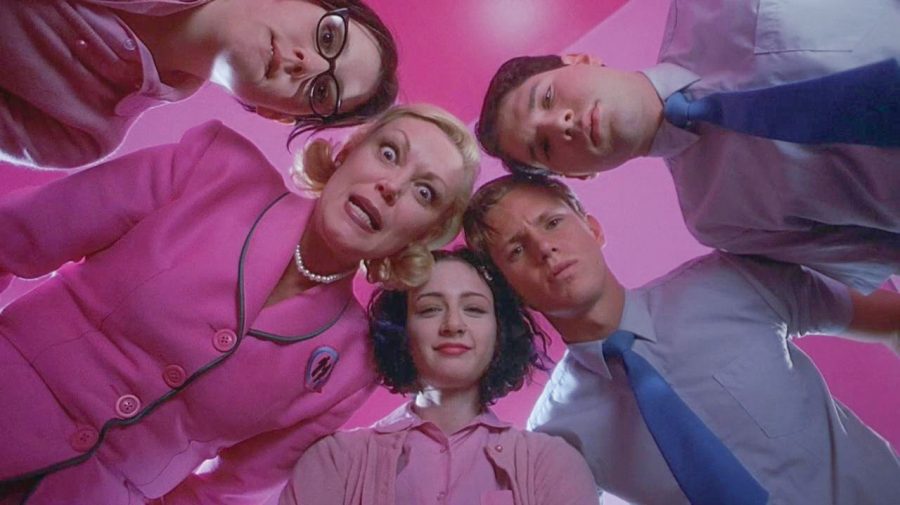Column | Looking back on 1999’s ‘But I’m a Cheerleader’
“But I’m a Cheerleader,” released in 1999, has recently been referred to as a “cult classic.”
Apr 3, 2023
In 1999, Lions Gate Films released “But I’m a Cheerleader,” a romantic comedy movie centering around a teenage cheerleader who is sent to gay conversion therapy by her friends and family.
The film starred actors who have since gained huge levels of fame, including Natasha Lyonne as the protagonist cheerleader Megan, Clea DuVall as Graham, another student at the rehab camp and RuPaul as conversion therapist Mike.
However, despite the talented cast and groundbreaking subject matter, the movie received primarily negative reviews upon its release.
A 1999 article from Variety described the movie as “a shallow, only mildly entertaining satire” that could only find “limited crossover appeal beyond the immediate target audience of young, undiscriminating gay viewers.”
A review from The Guardian in 2001 stated that the film “could have been funnier,” with critic Peter Bradshaw saying that he would have preferred to know more about the actual reality of conversion camps.
Get The Daily Illini in your inbox!
“But I’m a Cheerleader” continues to sit at a very mixed 42% on Rotten Tomatoes, and an only slightly more positive 6.7/10 on IMDB.
But upon scrolling through the two websites, a trend emerges: the more recent the review, the more positive the rating.
In 2000, Urbana native and film critic Roger Ebert published his review and rating of three stars. Notably, he finished his review with a prediction.
“‘But I’m a Cheerleader’ is not a great, breakout comedy, but more the kind of movie that might eventually become a regular on the midnight cult circuit,” Ebert wrote.
Over 20 years later, film site Movies on Weekends reflected back on Ebert’s review of the movie, with critic Sarah Cook writing, “Roger Ebert was right; the movie would eventually become a midnight hit.”
“‘But I’m a Cheerleader’ failed to land with critics, and it stumbled upon initial release,” Cook said. “When we say critics, we mean mostly straight critics who had a difficulty with the film.”
In 1999, full marriage equality was not yet present in the United States. Films portraying same-sex couples as prominently as in “But I’m a Cheerleader” were few and far between.
As Cook said, the majority of film critics most likely identified as straight, and due to the lack of national legalization of homosexual couples, they were much less accustomed to seeing them shown on camera.
Therefore, it’s no wonder that films like “But I’m a Cheerleader” were given somewhat mixed, if not much more negative reviews. It wasn’t exactly a movie that fit with the status quo of highly regarded films at the time.
However, television series and films produced within the past year feature much broader representation, especially within the LGBTQ+ community. Some of these include the comedy-drama series “Heartstopper” and romantic drama film “My Policeman.”
Both of these works received wide critical acclaim, while still gaining reasonable criticism from reviewers. The critics of today are providing support for LGBTQ+ films that was not seen with the release of “But I’m a Cheerleader.”
Jamie Babbit, director of “But I’m a Cheerleader,” said in a 2020 interview with Variety that she “wanted to make a gay ‘Clueless.’”
“Clueless,” a huge box office hit, has been recognized as one of the best teen films of all time. The only LGBTQ+ representation in the film is found inside character Christian, who plays strongly into gay male stereotypes.
“But I’m a Cheerleader,” which defies traditional lesbian stereotypes by depicting Megan as a normal cheerleader, did not make the impression on teenagers that “Clueless” did.
The film’s full purpose can finally be respected now that the world is ready to receive it. As critics and legal practices within the United States have finally caught up, the film is now referred to as “a modern cult classic.”






